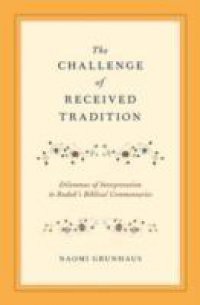One of the most vexing problems facing medieval Jewish interpreters of the Hebrew Bible was how to implement the new interpretive strategy of extracting the straightforward, contextual meaning of biblical verses (peshat), without neglecting revered ancient rabbinic modes of interpretation (derash), which tended to be more fanciful and homiletical. This book investigates the interpretive style of Radak (R. David Kimhi, c. 1160-1232), one of the most preeminent Jewish exegetes, who masterfully utilized both approaches simultaneously. Analyzing his idiosyncratic consistent juxtaposition of peshat and derash-type rabbinic comments, and thoroughly parsing his methodological statements, the book demonstrates how at times he finds rabbinic traditions essential to resolving textual questions that arise in exegesis, while at other times, he affords them only ancillary functions in his commentaries. Naomi Grunhaus also considers in depth Radak's criteria when challenging rabbinic teachings, whether in narrative or legal contexts, which leads to the conclusion that most often he rejects rabbinic traditions when they appear to contradict textual biblical evidence, but occasionally also on the grounds of implausibility. Particularly noteworthy is the author's discussion of Radak's apparent challenges to rabbinic legal interpretations of Scriptures, an approach which most other exegetes hesitated to take. The book considers the anomaly that Radak regularly quotes rabbinic traditions and relies on traditional authority, while simultaneously challenging this same authority when rejecting certain rabbinic interpretations.


















